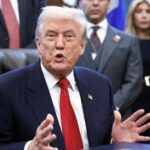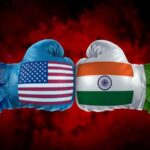External Affairs Minister in Beijing for first visit since Galwan, ahead of SCO FM meet where language on terrorism to be closely watched
India and China must move forward on de-escalation at the Line of Actual Control, External Affairs Minister S. Jaishankar told Chinese Foreign Minister Wang Yi, indicating that the next step after disengagement achieved nine months ago has still not been followed up by the withdrawal of troops. Mr. Jaishankar, who travelled to China for the first time since 2019 as well as the Galwan clashes in 2020, met with Mr. Wang, and also called on Chinese Vice President Han Zheng in Beijing, discussing both the positive momentum in ties and outstanding issues between them. During the bilateral talks between them, Mr. Jaishankar called for “normalising” people-to-people ties and avoiding “restrictive trade measures and roadblocks”, a reference to Chinese export restrictions on critical minerals. In addition, he stressed the need for SCO to address the issue of terrorism with “zero tolerance”.
“We have made good progress in the past nine months for the normalisation of our bilateral relations. It is a result of the resolution of friction along the border and our ability to maintain peace and tranquillity there,” Mr. Jaishankar said in opening remarks at the meeting with Mr. Wang. “It is now incumbent on us to address other aspects related to the border, including de-escalation.” In talks with Mr. Han, Mr. Jaishankar said that the “continued normalisation of ties can produce mutually beneficial outcomes”.
Mr. Jaishankar’s reference to the “continued normalisation” of ties is significant as he has held in the past that it is impossible to normalise ties without the situation at the border being resolved, along with the demobilisation of the troops that were amassed there in 2020. In December 2024, the External Affairs Minister had said in a statement in Parliament that disengagement of Indian Army and PLA troops along the LAC had been achieved, adding that the “next priority will be to consider de-escalation, that would address the massing of troops along the LAC with associated accompaniments.” However, while de-escalation is still pending, both sides have moved forward in restoring bilateral mechanisms in other areas, including visits by NSA Doval and Defence Minister Rajnath Singh to China, and the restart of the Kailash Manasarovar yatra after a 5-year hiatus.
In his meeting with Chinese Vice President Han, Mr. Jaishankar said that ties between India and China had been “steadily improving” since Prime Minister Narendra Modi and Chinese President Xi Jinping met at the BRICS summit in Kazan in 2024. PM Modi is expected to travel to China in early September for the SCO Summit, which Mr. Jaishankar’s visit will prepare for.
Chinese state media reported that Mr. Han had referred to the Modi-Xi meeting in Kazan as a “new starting point” for ties, and called for India and China to be partners as they are “major developing economies and important members of the Global South”.
On Tuesday (July 15, 2025), the two Foreign Ministers will attend the Shanghai Cooperation Organisation’s (SCO’s) Foreign Ministers meeting, where the joint statement expected to be issued will be watched closely for its references on terrorism. During the SCO Defence Ministers meeting in June, no joint statement was issued, after the MEA said “one country”, referencing Pakistan, had opposed the inclusion of language on terrorism in the aftermath of the Pahalgam terror attack and Operation Sindoor.
Reiterating that the SCO’s primary mandate is to combat terrorism, separatism and extremism, Mr. Jaishankar told Mr. Wang that “India hopes that zero tolerance for terrorism will be strongly upheld”, an MEA statement said.
A detailed statement issued by the Chinese Ministry of Foreign Affairs said that Mr. Wang had focused on changes in the international landscape and the challenge of “unilateral protectionism and bullying by powerful countries”, a reference to the U.S.’s reciprocal tariffs.
He said that India-China relations have “historical logic”. “They are not directed against any third party and should not be interfered with by any third party,” he added calling for trust instead of suspicion, and cooperation rather than competition, the Chinese MFA said.
India, China must move forward on de-escalation, Jaishankar tells Wang
External Affairs Minister in Beijing for first visit since Galwan, ahead of SCO FM meet where language on terrorism to be closely watched
India and China must move forward on de-escalation at the Line of Actual Control, External Affairs Minister S. Jaishankar told Chinese Foreign Minister Wang Yi, indicating that the next step after disengagement achieved nine months ago has still not been followed up by the withdrawal of troops. Mr. Jaishankar, who travelled to China for the first time since 2019 as well as the Galwan clashes in 2020, met with Mr. Wang, and also called on Chinese Vice President Han Zheng in Beijing, discussing both the positive momentum in ties and outstanding issues between them. During the bilateral talks between them, Mr. Jaishankar called for “normalising” people-to-people ties and avoiding “restrictive trade measures and roadblocks”, a reference to Chinese export restrictions on critical minerals. In addition, he stressed the need for SCO to address the issue of terrorism with “zero tolerance”.
“We have made good progress in the past nine months for the normalisation of our bilateral relations. It is a result of the resolution of friction along the border and our ability to maintain peace and tranquillity there,” Mr. Jaishankar said in opening remarks at the meeting with Mr. Wang. “It is now incumbent on us to address other aspects related to the border, including de-escalation.” In talks with Mr. Han, Mr. Jaishankar said that the “continued normalisation of ties can produce mutually beneficial outcomes”.
Mr. Jaishankar’s reference to the “continued normalisation” of ties is significant as he has held in the past that it is impossible to normalise ties without the situation at the border being resolved, along with the demobilisation of the troops that were amassed there in 2020. In December 2024, the External Affairs Minister had said in a statement in Parliament that disengagement of Indian Army and PLA troops along the LAC had been achieved, adding that the “next priority will be to consider de-escalation, that would address the massing of troops along the LAC with associated accompaniments.” However, while de-escalation is still pending, both sides have moved forward in restoring bilateral mechanisms in other areas, including visits by NSA Doval and Defence Minister Rajnath Singh to China, and the restart of the Kailash Manasarovar yatra after a 5-year hiatus.
In his meeting with Chinese Vice President Han, Mr. Jaishankar said that ties between India and China had been “steadily improving” since Prime Minister Narendra Modi and Chinese President Xi Jinping met at the BRICS summit in Kazan in 2024. PM Modi is expected to travel to China in early September for the SCO Summit, which Mr. Jaishankar’s visit will prepare for.
Chinese state media reported that Mr. Han had referred to the Modi-Xi meeting in Kazan as a “new starting point” for ties, and called for India and China to be partners as they are “major developing economies and important members of the Global South”.
On Tuesday (July 15, 2025), the two Foreign Ministers will attend the Shanghai Cooperation Organisation’s (SCO’s) Foreign Ministers meeting, where the joint statement expected to be issued will be watched closely for its references on terrorism. During the SCO Defence Ministers meeting in June, no joint statement was issued, after the MEA said “one country”, referencing Pakistan, had opposed the inclusion of language on terrorism in the aftermath of the Pahalgam terror attack and Operation Sindoor.
Reiterating that the SCO’s primary mandate is to combat terrorism, separatism and extremism, Mr. Jaishankar told Mr. Wang that “India hopes that zero tolerance for terrorism will be strongly upheld”, an MEA statement said.
A detailed statement issued by the Chinese Ministry of Foreign Affairs said that Mr. Wang had focused on changes in the international landscape and the challenge of “unilateral protectionism and bullying by powerful countries”, a reference to the U.S.’s reciprocal tariffs.
He said that India-China relations have “historical logic”. “They are not directed against any third party and should not be interfered with by any third party,” he added calling for trust instead of suspicion, and cooperation rather than competition, the Chinese MFA said.






NO COMMENT